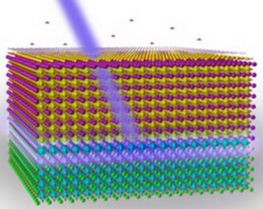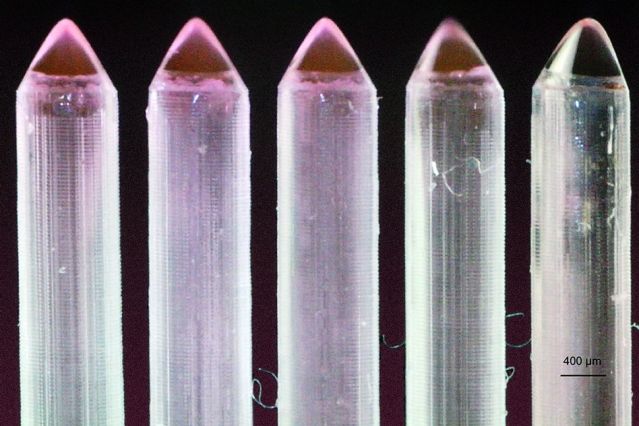How does water on the surface of this bizarre material control UV light emission and also its conductivity? (credit: Mohammad A. Islam et al./Nano Letters)
In a remarkable chance landmark discovery, a team of researchers at four universities has discovered a mysterious material that emits ultraviolet light and has insulating, electrical conducting, semiconducting, superconducting, and ferromagnetic properties — all controlled by surface water.
It happened while the researchers were studying a sample of lanthanum aluminate film on a strontinum titanate crystal. The sample mysteriously began to glow, emitting intense levels of ultraviolet light from its interior. After carefully reproducing the experimental conditions, they tracked down the unlikely switch that turns UV light on or off: surface water moisture.









